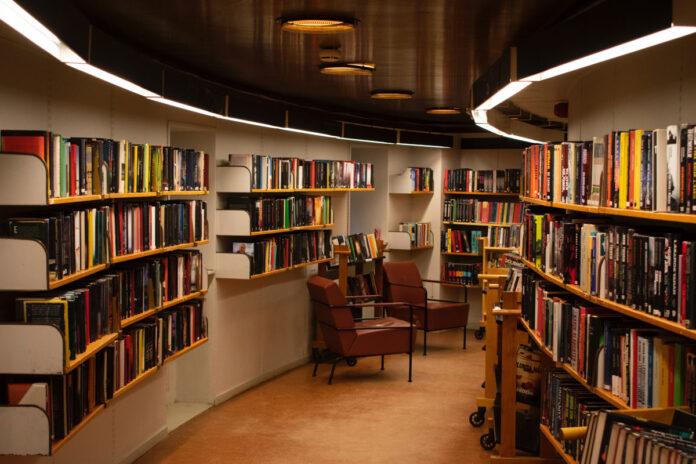
In today’s digital age, the media plays a central role in shaping public opinion and disseminating information. However, with the rapid spread of misinformation and disinformation, the need for media literacy education has never been more critical. Media literacy equips individuals with the skills to critically analyze media content, distinguish between credible sources and false information, and become responsible consumers and creators of media. This article explores the importance of media literacy education, best practices in teaching media literacy, collaboration between educators and journalists, and the far-reaching impact of media literacy on society.
The Importance of Media Literacy Education
1. Navigating the Digital Landscape: In the digital era, individuals are bombarded with an overwhelming amount of information. Media literacy education empowers them to navigate this vast landscape and make informed choices.
2. Challenging Misinformation: Media literacy equips individuals with the ability to recognize and challenge misinformation and disinformation, thereby reducing the spread of false narratives.
3. Fostering Critical Thinking: Media literacy encourages critical thinking, enabling individuals to analyze media content and identify potential biases or manipulative techniques.
Best Practices in Media Literacy Education
1. Age-Appropriate Curriculum: Tailor media literacy education to different age groups to ensure the content is accessible and relevant to the students’ developmental stages.
2. Hands-On Learning: Engage students in interactive activities, such as fact-checking exercises and media creation projects, to reinforce practical media literacy skills.
3. Encourage Inquiry: Encourage students to ask questions, challenge assumptions, and explore diverse perspectives when consuming media.
Collaboration between Educators and Journalists
1. Guest Speaker Sessions: Invite journalists to share their experiences and insights with students, providing real-world examples of media practices.
2. Joint Workshops: Conduct joint workshops where educators and journalists collaborate to design media literacy programs that align with current media trends.
3. Newsroom Visits: Organize visits to newsrooms or media outlets to expose students to the workings of journalism and media production.
The Impact of Media Literacy on Society
1. Informed Citizens: Media literacy fosters informed and engaged citizens who can participate actively in democratic processes.
2. Combating Misinformation: Media literacy contributes to the reduction of misinformation and its harmful effects on society.
3. Media Responsibility: A media-literate population holds media organizations accountable for accurate and ethical reporting.
Practical Guidelines for Media Literacy Education
1. Source Evaluation: Teach students how to critically evaluate the credibility of sources before sharing or acting on information.
2. Fact-Checking Tools: Familiarize students with fact-checking tools and websites to verify information.
3. Media Creation: Encourage students to create their media content, promoting responsible and ethical media production.
Relevant Case Study: The MediaWise Project
The MediaWise project, a partnership between the Poynter Institute, Stanford History Education Group, and the Local Media Association, aims to teach media literacy skills to young people. Through fact-checking workshops, educational videos, and partnerships with social media platforms, the project has empowered thousands of students to identify misinformation and become media-savvy consumers.
Quote : “Media literacy is not just about decoding the message, but about understanding the messenger.” – Martin Lindstrom, Branding Expert
Questions and Answers
1. Why is media literacy education essential in the digital age?
Media literacy education is crucial to equip individuals with critical thinking skills, enabling them to navigate the digital landscape, challenge misinformation, and become responsible consumers of media.
2. How can educators promote media literacy in schools and communities?
Educators can promote media literacy by integrating age-appropriate curriculum, hands-on learning, and encouraging inquiry-based activities.
3. What benefits does collaboration between educators and journalists bring to media literacy education?
Collaboration between educators and journalists provides real-world insights, exposes students to media practices, and reinforces the relevance of media literacy skills.
4. How does media literacy education impact society?
Media literacy education fosters informed citizens, combats misinformation, and promotes media responsibility, leading to a more informed and critical society.
5. What are practical guidelines for media literacy education?
Practical guidelines include source evaluation, introducing fact-checking tools, and promoting responsible media creation.
Role Model for Inspiration: Katharine Graham
Katharine Graham, the first female publisher of a major American newspaper (The Washington Post), demonstrated the power of media in informing the public and holding the powerful accountable. Her commitment to journalistic integrity and willingness to challenge authority serve as an inspiration for the role of media in society.
Recommended Book:
In “Trust Me, I’m Lying,” media strategist Ryan Holiday exposes the manipulative practices prevalent in modern media. The book serves as a cautionary tale and reinforces the importance of media literacy in a world dominated by digital information.
Overall it can be said that Media literacy education is the key to fostering critical thinking and digital literacy skills in individuals, enabling them to navigate the complex media landscape with confidence. Educators and journalists must collaborate to design effective media literacy programs that empower students to challenge misinformation and become responsible consumers and creators of media. The impact of media literacy extends far beyond the individual, shaping an informed and engaged society that holds media organizations accountable for their reporting. Let us embrace media literacy as a vital tool in building a more resilient, informed, and democratic world.













